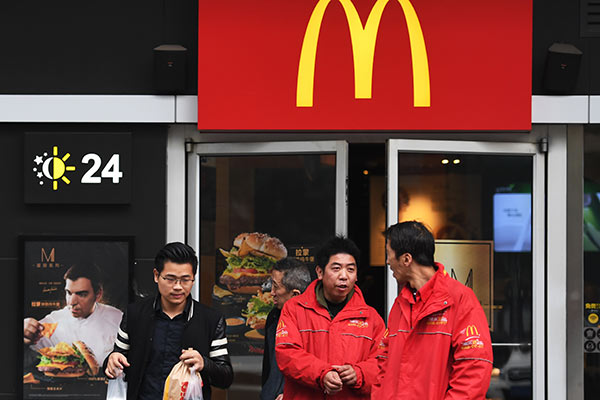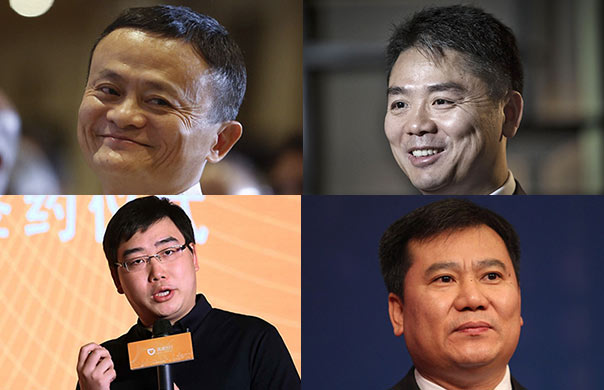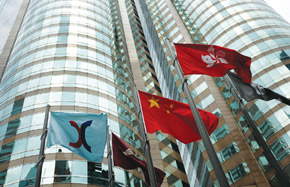Behind the name lies a tall tale
 |
|
People stand outside a McDonald's restaurant in Beijing.AFP |
There was a time when they would adopt posh-sounding Chinese equivalents of their names to make a deep impression on the Chinese consumer mind. That was key to their mystique, pull, image and the perception that they were exalted, different.
Maybe not anymore. Take McDonald's. Known for its iconic golden arches, the company recently changed its corporate name (which appears in legal documents) to Jin Gong Men. That may sound like a transliteration of golden arches, if a bit unfashionable (in the eyes of millions of Chinese netizens).
In August, McDonald's announced the completion of a strategic partnership with CITIC Ltd, CITIC Capital Partners and The Carlyle Group. CITIC and CITIC Capital will hold a majority stake in the new company.
"The change of its license name could be the Chinese shareholders' decision to reflect the Chinese ownership," said Amanda Liu, vice-president and creative director of Labbrand, a brand consultancy. Labbrand has rolled out popular Chinese brand names for companies such as Walt Disney Co's Marvel and LinkedIn.
For example, BelVita, the healthy biscuit brand, calls itself Bei Lang (meaning Baking A Bright Day) in Chinese. Professional networking site LinkedIn goes by the moniker Ling Ying (Leading Elite); Marvel is Man Wei (Comic Power).
A good Chinese name means the efforts and change adapted by the brand for the Chinese market, said Liu. "A Chinese brand name shows respect and forges closer emotional connections with consumers," she said.
But it is not absolutely essential for foreign companies to have a Chinese brand name. For example, IBM, Zara and H&M have made a big impression in China despite using their English names. "The name has to be simple and easy to pronounce," said Liu.
A Chinese name could also go south. For example, two years after Airbnb launched its business in China, the hospitality firm adopted its Chinese name Ai Bi Ying, which means welcome each other with love. The name was considered largely by netizens as hard to pronounce and understand. Some have even questioned the company's localization level in China.
























